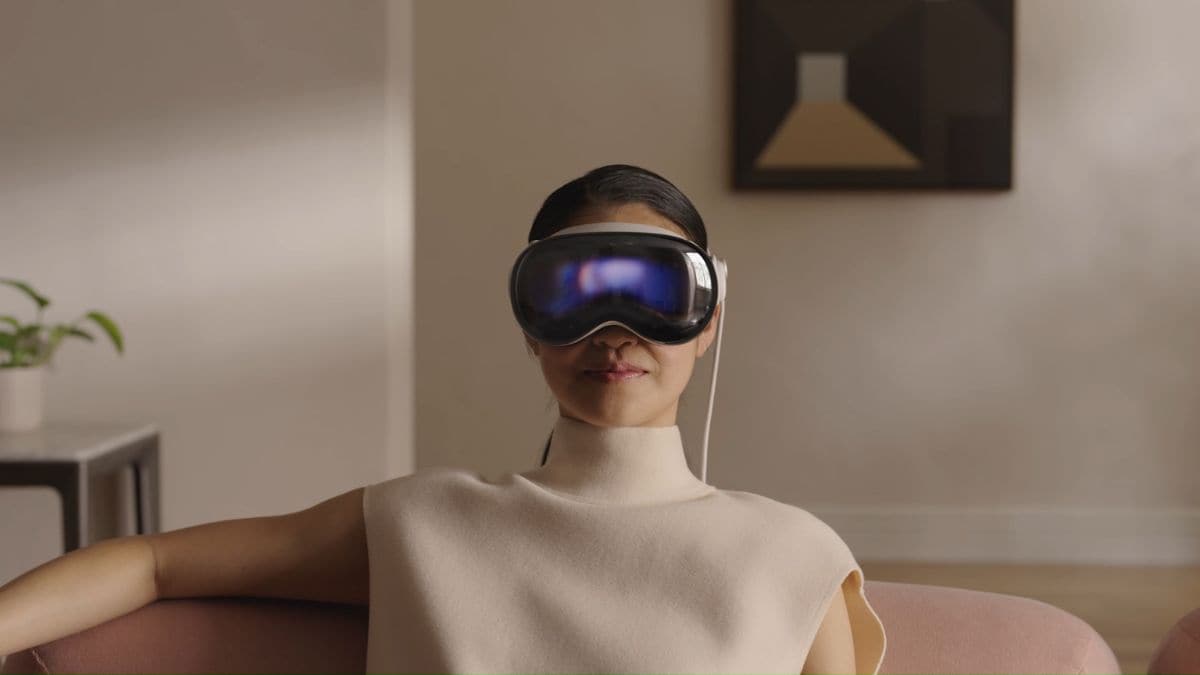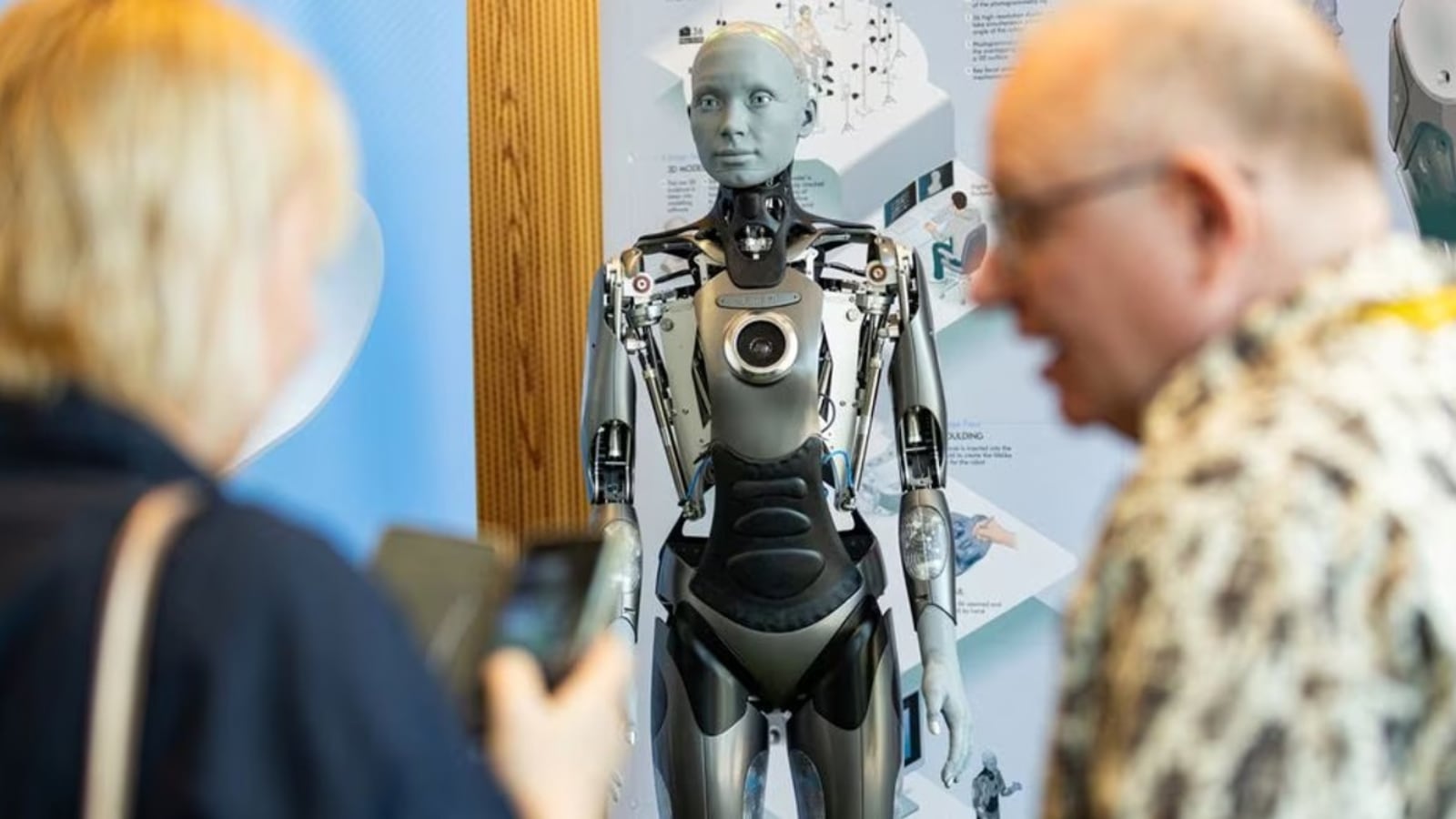- TECHSWU
- Posts
- TECHSWU
TECHSWU


Exciting news for tech enthusiasts—the Motorola Razr 60 Ultra has officially hit the Indian market! Packed with a lightning-fast Snapdragon 8 Elite processor and an impressive 50MP quad-camera setup, this smartphone promises top-tier performance and stunning photography. Featuring a Super HD display, Moto AI, and Dolby Atmos support, it’s designed for those who crave innovation and entertainment on the go.
With three chic colors to choose from, the Razr 60 Ultra is a stylish addition to any tech lover's collection. Priced starting at INR 89,999, it offers a perfect blend of elegance and cutting-edge technology.


In a thought-provoking exploration, Tyler Cowen and Avital Balwit discuss how the rise of artificial intelligence is poised to redefine humanity itself. As we stand on the brink of a new era, the authors highlight the exhilarating potential of AI to enhance our lives while simultaneously provoking an existential crisis about our identity and purpose.
With machines rapidly surpassing human cognitive abilities, the looming question is: What does it mean to be human when we are no longer the smartest beings? Their essay invites us to reflect on our responsibilities in this transformative age, emphasizing the need for future generations to navigate life meaningfully alongside superintelligent entities. This conversation promises to extend well beyond technology’s impact on jobs, diving deep into the essence of our human experience.
Join the discussion as we ponder how to embrace the AI revolution without losing our humanity.

In an exciting leap toward the future, Apple has reportedly joined forces with Synchron, a cutting-edge startup, to develop innovative brain-computer interfaces (BCIs). These groundbreaking devices aim to help individuals with ALS control Apple products, including the Vision Pro, through brain signals alone.
Synchron's flagship device, Stentrode, is in early testing and demonstrates promising developments. This partnership also places Apple in competition with other trailblazers in the field, like Elon Musk’s Neuralink, which is working on its own implantable chips.
BCIs, which range from non-invasive to invasive designs, interpret brain activity and convert it into commands, potentially revolutionizing accessibility for those with physical disabilities. Early trials have shown encouraging results, as one ALS patient successfully navigated Apple’s ecosystem using nothing but his thoughts.

Exciting news for smartphone enthusiasts! Sony has officially unveiled the Xperia 1 VII, a flagship device powered by the cutting-edge Snapdragon 8 Elite processor. This sleek model not only offers impressive specifications but also reinstates the beloved 3.
5mm audio jack, catering to audiophiles with its array of music-centric features. This latest offering promises high performance and advanced capabilities, making it a worthy successor to the Xperia VI.
Dive into the details to discover the price, specs, and standout features that set the Xperia 1 VII apart in the crowded smartphone market.

Can AI truly step in for your therapist? While AI is gaining traction as a mental health tool, experts like Julie Manuel from Kettering Health point out its limitations. Despite the convenience of AI chatbots, they lack the human touch essential for genuine connections and healing.
Traditional therapists read body language, respond with empathy, and maintain confidentiality under strict regulations—qualities AI can't replicate. Julie warns that using AI for therapy can lead to cold, disconnected experiences and that personal data shared with chatbots may not be protected by the same standards as traditional therapy.
Instead of replacing human therapists, AI should be viewed as a supplementary resource. It can help start tough conversations or offer initial advice but can't replace the crucial human connection needed for effective therapy.
If you’re struggling, it’s essential to reach out to a qualified professional for support.

China is set to revolutionize manufacturing with its wave of AI-powered humanoid robots! The startup AgiBot is leading the charge from a bustling Shanghai facility where robots tackle tasks like folding T-shirts and making sandwiches. Operating 17 hours daily, their goal is to harness data to create advanced robots capable of self-assembly and adaptability.
The Chinese government is heavily backing this endeavor, pouring over $20 billion into humanoid development and establishing extensive data collection sites. While the technology promises enhanced productivity and may fulfill labor shortages, concerns loom over potential job losses for the 123 million factory workers in China.
Nonetheless, industry leaders argue that new opportunities will arise as these machines handle repetitive and unsafe tasks.

Exciting changes are on the horizon with the upcoming release of Android 16! Unveiled during Google’s I/O event, this new operating system promises to elevate your user experience with a refreshing design and powerful security features. Get ready for Advanced Protection, which offers a centralized hub for managing crucial security settings, along with enhanced tools like Intrusion Logging and USB protection.
The revamped Find Hub feature adds satellite connectivity, ensuring you can stay connected even without cellular service.
Customization gets a significant boost through Material 3, allowing for dynamic color themes and interactive notifications.
Plus, Quick Settings will be more user-friendly, fitting your favorite actions in one place. And for Wear OS users, Gemini is arriving to enhance functionality across devices.